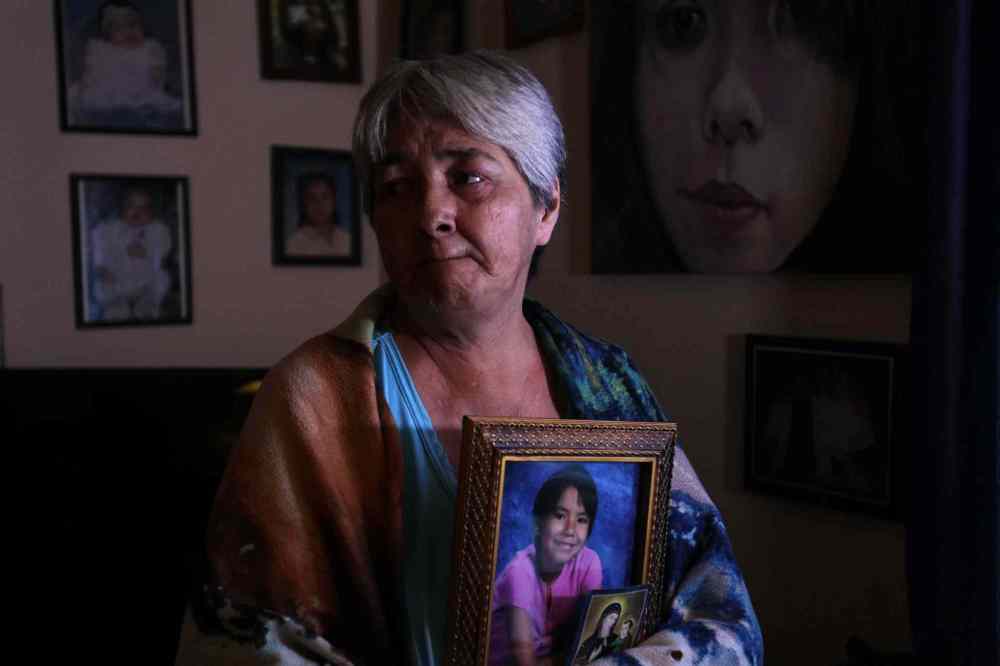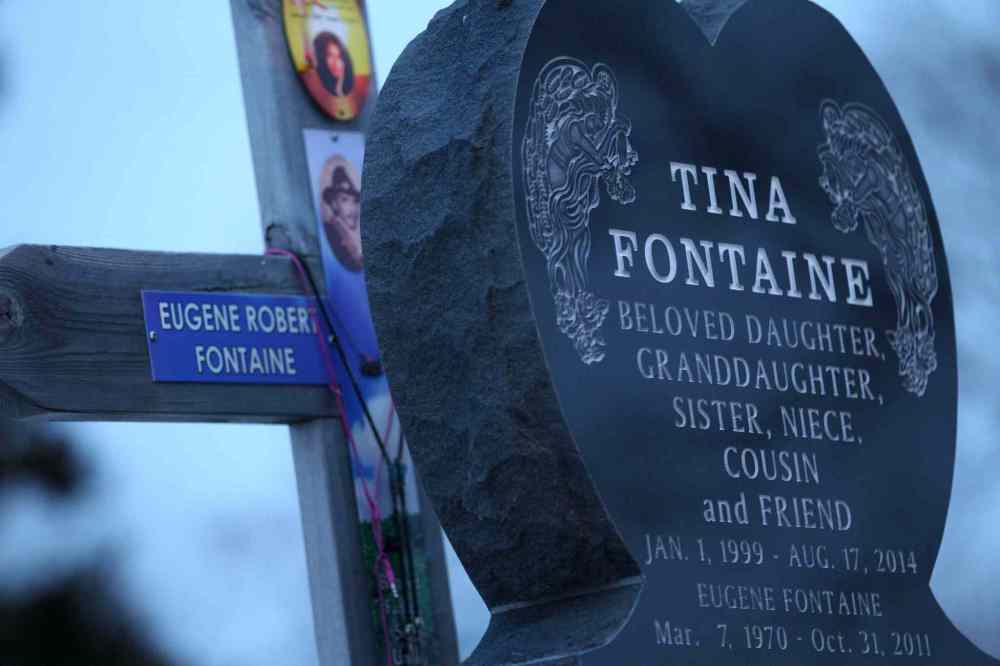The call that helped end the mystery, but not the torment, of Tina’s death
Advertisement
Read this article for free:
or
Already have an account? Log in here »
To continue reading, please subscribe:
Monthly Digital Subscription
$1 per week for 24 weeks*
- Enjoy unlimited reading on winnipegfreepress.com
- Read the E-Edition, our digital replica newspaper
- Access News Break, our award-winning app
- Play interactive puzzles
*Billed as $4.00 plus GST every four weeks. After 24 weeks, price increases to the regular rate of $19.00 plus GST every four weeks. Offer available to new and qualified returning subscribers only. Cancel any time.
Monthly Digital Subscription
$4.75/week*
- Enjoy unlimited reading on winnipegfreepress.com
- Read the E-Edition, our digital replica newspaper
- Access News Break, our award-winning app
- Play interactive puzzles
*Billed as $19 plus GST every four weeks. Cancel any time.
To continue reading, please subscribe:
Add Free Press access to your Brandon Sun subscription for only an additional
$1 for the first 4 weeks*
*Your next subscription payment will increase by $1.00 and you will be charged $16.99 plus GST for four weeks. After four weeks, your payment will increase to $23.99 plus GST every four weeks.
Read unlimited articles for free today:
or
Already have an account? Log in here »
Hey there, time traveller!
This article was published 11/12/2015 (3594 days ago), so information in it may no longer be current.
SAGKEENG FIRST NATION — Thelma Favel answered the phone around 11:30 a.m. Friday when Sgt. John O’Donovan called to tell her, “We have him.”
The Winnipeg homicide detective was referring to the man accused of killing Tina Fontaine, 15, whose body was discovered Aug. 17, 2014, in the Red River, wrapped in a plastic bag.
Since then, Favel — a great-aunt, who raised Tina since she was four years old — has been tormented not only by the loss of “my baby,” but haunted by the fact “Tina was in her grave but (the killer) was walking around free.”
Raymond Joseph Cormier, 53, has been charged with second-degree murder in Tina’s death.
For Favel, the phone call from O’Donovan — and subsequent visit from Const. Linda Parsons of the police victim services unit — set off a flood of emotions, for better and worse.
“I can’t focus on one emotion,” she said. “It’s all bundled up. It’s still sad. I know they caught (the accused), but they’re never going to bring her back.”
Favel had been told Thursday night O’Donovan would call with information on Tina’s case. She expected police were close to making an arrest.
When the call came, Favel listened intently.

She said O’Donovan told her, “We have him. We have the man who did this to Tina. He will never get out.”
Then she started sobbing.
“Tears and sad tears,” she said. “Sad tears for the other women who are still waiting for answers. I got my answers.”
Favel was so distraught on the phone her husband, Joe, at first thought the worst.
“I thought someone got hurt again,” he said. Then: “A big sigh of relief came over me and I yelled. Yeah, I cried.”
O’Donovan didn’t provide details on how Tina was slain, only telling Favel it was a “quick death” and “she didn’t suffer.”
After fighting with authorities for information on the investigation — and dealing with incidents in which police and social workers had made mistakes around the time of Tina’s disappearance — her family has often been frustrated during the past 16 months. But not on Friday, when she called O’Donovan an “angel.”
“I just didn’t know what else to say but thank you,” Favel said. “I called the whole force an angel, whoever was involved. They’ll always be in my prayers.”
Favel said she thought Tina’s case would be “pushed aside” like the hundreds of other cold cases involving missing and slain indigenous females in Canada. “But they never did. They just kept looking,” she said.
Favel has often been overcome by depression. She couldn’t bring herself to come within Winnipeg city limits until two weeks ago “because Tina just went into a city that just ate her up and spit her out like garbage,” she said.
Finally, however, Favel decided to have Joe drive her to the Alexander Dock, where a small memorial of flowers and red dresses honours Tina’s memory at the spot her body was pulled out of the river.
“It wasn’t cold out, but all around felt very cold,” Favel said. “And looking at the water, it was so awful knowing that’s where they found her body. It would have been so cold. And this was the last place my baby was alive. (But) I just needed to see myself where she was found.”
As she drove away, Favel said she felt the pressure lift off her shoulders, just a bit. Then a little more Friday, after O’Donovan’s call.
The Favels plan to return to the memorial around Christmas. “I want to bring some more flowers and another red dress,” she said.
The healing hasn’t been easy, and the emotional scars may never disappear.
But at least when Favel held a picture of her great-niece, then seven, she could stroke Tina’s chin — just as she did years ago — and say, “Now she really has that smile up there.”


Randy Turner
Reporter
Randy Turner spent much of his journalistic career on the road. A lot of roads. Dirt roads, snow-packed roads, U.S. interstates and foreign highways. In other words, he got a lot of kilometres on the odometer, if you know what we mean.
Our newsroom depends on a growing audience of readers to power our journalism. If you are not a paid reader, please consider becoming a subscriber.
Our newsroom depends on its audience of readers to power our journalism. Thank you for your support.


